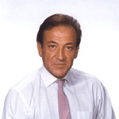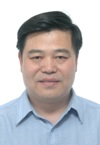
Alain L Fymat
President/CEO and Professor
International Institute of Medicine and Science
USA
Biography
Dr. Alain L Fymat is a medical scientist and an educator. He was educated at the University of Paris-Sorbonne and the University of California at Los Angeles. He is the current President/CEO and Professor at the International Institute of Medicine and Science with a previous appointment as Executive Vice President, Chief Operating Officer and Professor at the Weil Institute of Critical Care Medicine. He was formerly Professor of Radiology, Radiological Sciences, Radiation Medicine (Oncology), Critical Care Medicine, and Physics at several U.S. and European Universities. Previously, he was Deputy Director (Western Region) of the U.S. Department of Veterans Affairs, Veterans Health Administration (Office of Research Oversight), and Director of the Magnetic Resonance Imaging Center and for a time Acting Chair of Radiology at its Loma Linda, California Medical Center. He has extensively published (~ 350 publications including patents, books & monographs, book chapters, refereed articles) and has lectured extensively in the USA, Africa and Asia. He has been the recipient of numerous research grants from government, academia and private industry, and has consulted extensively with these entities. He is Honorable Editor of the International Journal of Cancer Prevention and Current Research and the International Journal of Nanomedicine Research. He s also Editor of the Global Journal of Nanomedicine and the Journal of Nanobiotechnology. He is a Board member of several institutions and Health Advisor of the American Heart & Stroke Association (Coachella Valley Division, California).
Research Interest
Dr. Fymat’s current research interests lie at the interface between science and medicine, particularly molecular/personal/precision medicine, nanomedicine, human genetics/epigenetics/ecogenetics, and pharmacogenomics. His most recent publications deal with magnetic resonance Imaging with nanocontrasting materials, nanotechnology and cancer, nanochemotherapy, nanoneurology, natural and synthetic immunotherapy, drug delivery including across the brain protective barriers, and drug manufacturing in Africa.

Sergey Suchkov
Center for Personalized & Translational Reproductology
I.M.Sechenov First Moscow State Medical University
Russia
Biography
Dr Sergey Suchkov, MD, PhD was born in 11.01.1957, a researcher-immunologist, a clinician, graduated from Astrakhan State Medical University, Russia, in 1980. Suchkov has been trained at the Institute for Medical Enzymology, The USSR Academy of Medical Sciences, National Center for Immunology (Russia), NIH, Bethesda, USA, and British Society forImmunology to cover 4 British university facilities. Since 2005, Dr Suchkov has been working as Professor of I.M. Sechenov First Moscow State Medical University and of A.I.Evdokimov Moscow State Medical & Dental University. From 2007, Suchkov is the First Vice-President and Dean of School of PPPM Politics and Management of the University of World Politics and Law. In 1991-1995, Dr Suchkov was a Scientific Secretary-in-Chief of the Editorial Board of the Interna-tional Journal“Biomedical Science†(Russian Academy of Sciences and Royal Society of Chemistry, UK) and TheInternational Publishing Bureau at the Presidium of the Russian Academy of Sciences. In 1995-2005, Suchkov was a Director of the Russian-American Program in Immunology of the Eye Dis-eases.Dr Suchkov is a member of EPMA (European Association of Predictive, Preventive and Person-alized Medicine,Brussels-Bonn), a member of the NY Academy of Sciences, a member of the Editorial Boards for Open Journal of Immunology, EPMA J., and Personalized Medicine Universe, and others. Dr Suchkov is known as a co-author of the Concept of post-infectious clinical and immunological syn-drome, co-author of a concept of abzymes and their impact into the pathogenesis ofautuimmunity conditions, and as one of the pioneers in promoting the Concept of PPPM into a practical branchof health services. Now r Suchkov is a Chair of Dept for Personalized & Translational Medicine, and Director, Center for Personalized & Translational Reproductology, I.M.Sechenov First Moscow State Medical University. Prof Sergey Suchkov, MD, PhD Chair, Dept for Personalized and Translational Medicine, Director, Center for Personalized Reproductology & Pediatrics, I.M.Sechenov First Moscow State Medical University, Moscow, Russia Member, EPMA, Brussels, EU Member, PMC, Washington, DC, USA Member, ISPM, Tokyo, Japan Member, New York Academy of Sciences Member, ACS, USA Member, AHA, USA Member, AMEE, Dundee, UK Secretary General, UCC, Cambridge, UK
Research Interest
Translational Medicine
Biography
Prof. Wei is best known for his ground-breaking work on theory of complicated liquids. He along with Prof. Gren Patey have found that strongly interacting dipolar spheres can form a ferroelectric nematic phase. This was the first demonstration that dipolar forces alone can create an orientationally ordered liquid state. It is also the first time that the existence of a ferroelectric nematic phase has been established for a model liquid. This discovery solved a long standing problem in theoretical physics, and created a new direction in search for new liquid crystal materials (Phys. Rev. Lett. 68, 2043, 1992), cited about 180 times). In recent years, Prof. Wei developed tools of molecular simulation and applied them to study biological systems with relevance to computed aided drug design and structural biology.
Research Interest
Quantum & statistical mechanical theory and computer simulation of molecular clusters, liquids, liquid crystals, solid/liquid interfaces, energetic materials and biologically interesting systems.


